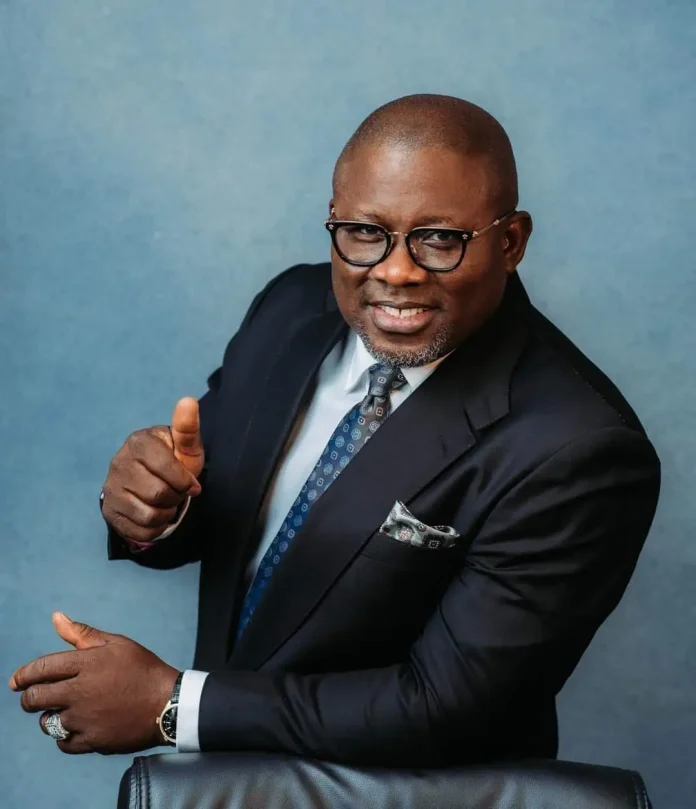In the heart of Nigeria’s oil-rich Niger Delta, a quiet revolution is unfolding—not with placards or protests, but with the steady hum of transformers and the glow of electric light piercing through the dusk. At the helm of this transformation is the Delta State Commissioner for Energy, Hon. Sunday Tataobuzogwu, executing a bold and inclusive vision under the dynamic leadership of the Delta State Governor, Rt. Hon. Sheriff Oborevwori. Together, they are redefining development through power—connecting forgotten communities, restoring livelihoods, and turning darkness into opportunity across the State.
In an exclusive media chat in his office in Asaba, Hon. Sunday Tataobuzogwu reiterated the State government’s unwavering commitment to delivering reliable, affordable, and sustainable electricity to all Deltans, leveraging the bold reforms of the Electricity Act of 2023.
In just two years, the State’s energy landscape has experienced a dramatic shift. Communities that had long resigned themselves to darkness are now basking in light, both literally and figuratively. The Delta State government has installed street lights and transformers across cities, towns, and rural communities—restoring power and hope to people who had all but given up.
Energy Equity Through Innovation
What’s driving this transformation is not just the provision of power but a bold, inclusive energy strategy. The Delta State government, led by the Ministry of Energy, has launched a comprehensive plan rooted in the 2023 Electricity Act, which allows States to manage their electricity markets. Tataobuzogwu describes this as a “game changer,” enabling the state to partner with private investors, generate its power, and deploy mini-grids to off-grid communities.
Harnessing Delta’s Natural Advantage
Delta State isn’t just investing in infrastructure—it’s capitalising on its natural energy advantage. “We have gas—plenty of it,” Tataobuzogwu emphasises. “That’s why investors are coming. It’s cheaper and more efficient to generate power from Delta than elsewhere. That’s why we are the next energy hub of Nigeria.”
He revealed that the State is currently discussing with investors from within and outside the State on various partnership models for increased power generation and supply available, adding that the successful investors will be unveiled as soon as the State Regulatory Commission is fully in place and running.
The Asaba Independent Power Project (IPP) already supplies near-24-hour electricity to government offices. More partnerships with Generating Companies, Distribution Companies, and private investors are in the works, alongside a newly approved Delta State Electricity Market Policy that provides clear regulations and incentives for developers.
The State is also creating its own Electricity Regulatory Commission, modelled after the National Electricity Regulatory Commission (NERC), but tailored to Delta’s specific needs. “This commission will license, regulate, and support every operator in the state,” Tataobuzogwu explains. “They are the engine room of this revolution.”
He disclosed that to provide electricity in hard-to-reach areas, there are plans underway to roll out solar mini-grids, especially in riverine and off-grid locations, to cater to the underserved populace.
“We are going cluster by cluster,” Tataobuzogwu explains. “Some areas will use solar, others will use mini-grids, and some will remain on the national grid. We’re mapping the needs of every Local Government Area. No one will be left behind.”
Especially not the rural communities. With plans to electrify riverine areas, Hon. Tataobuzogwu is confident that “economic life will return to the creeks.” Villages once cut off from power for decades are now preparing for their first real connection to the grid—or to clean, renewable alternatives.
Mini-Grids, Mega Impact
One of the most ambitious parts of Tataobuzogwu’s vision is the widespread deployment of mini-grids in areas that the national grid doesn’t reach. Forested communities, remote villages, and far-flung islands that were previously written off are now being targeted with solar-powered micro-networks.
“These are places where a 50km stretch transmission line is not feasible,” Tataobuzogwu says. “But with mini-grids, we can power them with 100 to 200 kilowatts, which is perfect for their needs.”
And with community ownership models in place, there’s security and accountability. “When the power is theirs, the people protect it,” he explains. “No one wants to destroy what belongs to them.”
The Business of Light
At the core of Delta’s new energy strategy is sustainability—both in infrastructure and in finance. “Gone are the days of full government subsidy,” says Tata bluntly. “If you want light, you have to pay for it. Investors need to see commitment from communities.”
But far from being a deterrent, this model is spurring responsible consumption. In many villages, residents now pay through bulk arrangements facilitated by community leaders. “I’m from a village that pays,” Tata adds proudly. “Even when I’m not home, they call me to pay for my father’s house. And I do—because we need to sustain the light.”
The model is being reinforced through proper metering and consumer education. “We’re teaching people that power isn’t free, and wastefulness costs money,” he says. “Once you start paying, even your children will learn to switch off lights.”
A Future Worth Paying For
For Tataobuzogwu, the energy revolution is personal—and spiritual. “I want a Delta where our children will say, ‘Yes, there was once a man and a government that gave us light.’ I want to smile even from my grave.”
He concludes with a challenge and a promise: “We must believe in this Delta. The governor believes. I believe. You must believe too. This is our state. We must make it work.”
As Delta State charges into the future, one thing is clear: the power to transform lives is no longer just a metaphor. It’s a tangible current—flowing from vision, through wires, to homes, markets, and dreams.
On the affordability of power that will be available for consumers, the Commissioner said that people should be ready to pay for power consumed, as the government will not subsidise the cost of power.


